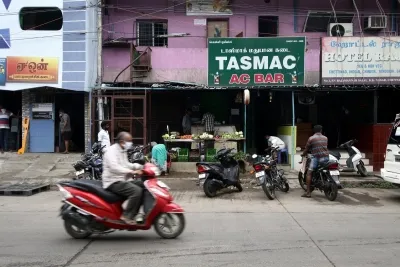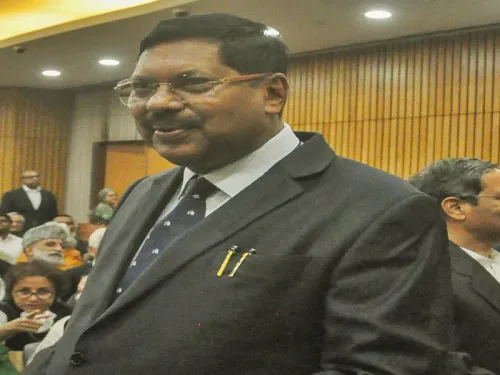Is the TN government expanding the liquor bottle buy-back scheme statewide?

Synopsis
Key Takeaways
- Expansion of buy-back scheme to all Tasmac outlets.
- Focus on **environmental sustainability** and responsible consumption.
- Introduction of **tracking measures** for bottle returns.
- Gradual reduction of Tasmac outlets across Tamil Nadu.
- Consideration of **Tetra Pak** for liquor sales.
Chennai, Aug 14 (NationPress) The Tamil Nadu government is poised to broaden its buy-back initiative for empty liquor bottles to encompass all Tamil Nadu State Marketing Corporation (Tasmac) outlets throughout the state. This move is part of a larger effort to foster environmental responsibility and enhance retail practices within the liquor industry.
Initially launched in the Nilgiris district following a court order addressing environmental issues related to discarded bottles, the scheme has since been adopted in select districts with promising outcomes.
Under this programme, customers incur an extra Rs 10 charge for each liquor bottle at the time of purchase, which is refunded upon the return of the empty bottle.
To bolster tracking and mitigate misuse, Tasmac intends to sell bottles adorned with stickers indicating the shop number.
The Prohibition and Excise Department states that this expansion is in line with the government’s long-term vision to promote eco-friendly practices in liquor sales.
Additionally, the department has been progressively reducing the number of Tasmac outlets across Tamil Nadu, with 500 outlets closed thus far, and others relocated from sensitive locations. FL2 licenses for the sale of liquor in private establishments, such as hotels, are now only issued in areas without an existing Tasmac outlet.
There is also an ongoing consideration to introduce liquor in Tetra Pak containers to further minimize glass bottle waste and improve safety.
Officials have stressed that such initiatives will only proceed following a comprehensive assessment of feasibility, consumer acceptance, and environmental advantages. The department has confirmed that there have been no irregularities within Tasmac's administration and that no public funds have been misappropriated.
Strict actions are being enforced against those found selling liquor at inflated prices in outlets. Consequently, salary increases for 451 employees implicated in related complaints have been suspended. These measures are aimed at ensuring transparency, protecting consumer rights, and maintaining accountability in operations.
While the government is dedicated to decreasing the number of liquor outlets, it emphasizes that a sudden closure of all Tasmac shops would have significant economic and social consequences. Instead, it is pursuing a gradual phase-out strategy that balances state revenue needs with public health goals and responsible consumption practices.
This thoughtful approach, alongside initiatives like the bottle buy-back scheme, illustrates the administration’s multifaceted policy for reforming the liquor retail sector in Tamil Nadu.









